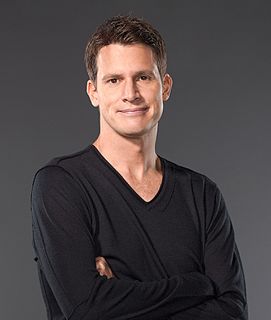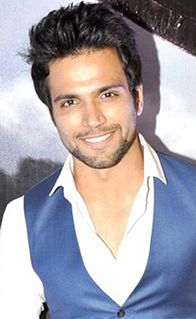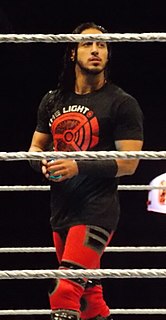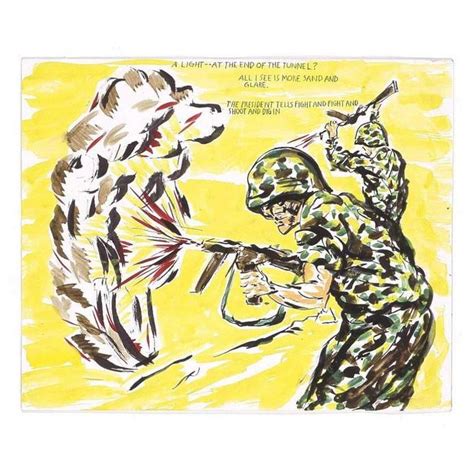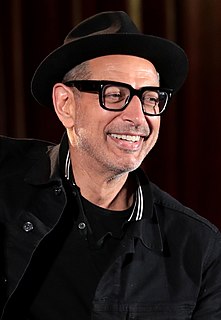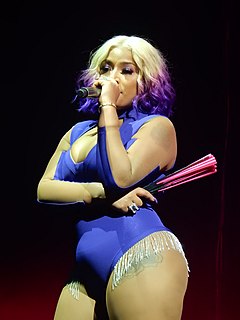A Quote by Daniel Tosh
I'm going to be cremated from the neck down. And at my funeral, when people are talking about me, they have to hold my head. And then at the end, they have to kick me into the audience and the audience has to keep me up for at least three hits or you have to start the whole service over. No cradling it - I want legit sets.
Related Quotes
As an actor, you should always keep your trump card hidden from your audience. I want the audience to keep expecting more and more from me. I want to do 'different' work - good and memorable roles - so that audience appreciate me more. That's why I love to surprise my audience with something they never expect me to do.
I still hold that pen; I still write my own story. So it's going to take a whole lot more than Samoa Joe running me over. And it's going to take more than Randy Orton kicking my face in. It's going to take more than Erick Rowan slamming my head through a table. You guys keep trying to put me down, but I will not stay down.
Sometimes when my fans come up to me, they think it's going to be entertaining, like I'm going to tell jokes or do bits, and then instead of that I end up talking about really mundane things with my fans, and then they're kind of like, "This is boring. I want to go talk to somebody else." I think I bore my fans to death by over-talking to them.
What social media has done - Facebook, Twitter - is show the audience. I don't have an audience. When I make my work, it just goes out into the ether. I have a thick skin and it just brings me down to earth, you know, to realize how out-there and far away and paltry the audience is that gets what I'm saying. It's depressing if I let it get to me. And it's the same with hanging a show, the way it's put up, like, three stories high and you can't read a single word.
It's so much better for me to do a talk show. You still have that energy of the audience, and the audience is just as important as that guest that's sitting next to me. It's not about me and that guest exchanging energy and talking. It's about everything that's going on in that room, and they're as much a part of the show as anything. I like this better than anything I've ever done.
I like to service the full audience of America, so I try to do things that are just real artistic, like when they don't have the most money, but it's a great piece of work. Then, there are big, fun comedies and big animated movies for kids. I want to do things for my nieces and nephews. Ultimately, we're trying to deliver something entertaining to an audience. As long as it can entertain the audience, and it makes me or my niece and nephew laugh or cry, then I think it's good.
To achieve the intimacy between performer and audience in storytelling, I feel like I have to let the audience in on my emotional state, not just, "Here's a story I'm going to tell by rote, and you're just going to listen to it, because I'm such a wonderfully entertaining fellow." It's the idea of sharing enough of myself that it's not just all about, "Look at me, look at me." There's an element to it of, "You understand what I'm talking about, right? You've been in this place that I've been in," which makes it a richer experience.
It's very important that a film that intends to play tricks on the audience... has to play fair with the audience. For me, any time you're going to have a reveal in the film, it's essential that it have been shown to the audience as much as possible. What that means is that some people are going to figure it out very early on. Other people not til the end. Everybody watches the film differently.
I test the movies a lot, and if the audience says they love the movie, we know we're on the right track. And if they tell me they hate it, I try to figure out what I've done wrong. But every time out, the audience wants me to go deeper, they want to know more about the characters, and they don't want these movies to be shallow. So they really urge me to tell them a complicated story, and then when I do so, they're thrilled
When Kehlani brought me out onstage, I really enjoyed that. I was just appreciative for her to think of me and bring me out woman to woman, introducing me to a whole new audience to me. It was just showing that I was appreciated for what I'm doing, that some people mess with me, and I'm all over the place.
